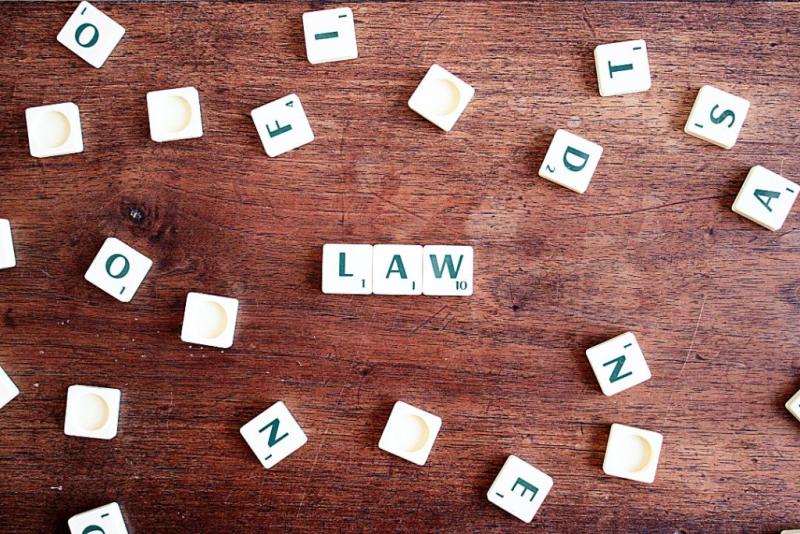Why Hiring an Attorney is Essential in Domestic Violence Cases
Healing from Trauma: How Counseling and Therapy Can Help Domestic Violence Victims Reclaim Their Lives

Domestic violence is a serious issue that affects millions of people every year. It's important to understand what domestic violence is, the different types of domestic violence, the causes, signs, and effects it has on victims and their families.
What is Domestic Violence?
Domestic violence is a pattern of abusive behavior in a relationship that is used to gain power and control over the other person. It can happen to anyone, regardless of age, gender, or sexual orientation. Domestic violence can take many forms, including physical, sexual, emotional, and financial abuse.
Types of Domestic Violence
Physical abuse is the most recognizable form of domestic violence. It involves physical harm or injury to the victim, such as hitting, slapping, choking, or kicking. Sexual abuse involves any unwanted sexual contact or behavior. Emotional abuse is when the abuser uses words or actions to degrade, humiliate, or manipulate their partner. Financial abuse is when the abuser controls the victim's finances, preventing them from having access to money or employment opportunities.
Causes of Domestic Violence
Domestic violence is a complex issue with many different causes. Some common factors include a history of abuse or trauma, mental health issues, substance abuse, and financial stress. However, there is no single cause of domestic violence, and it can happen in any relationship.
Signs of Domestic Violence
There are several warning signs that someone may be experiencing domestic violence, including physical injuries, changes in behavior or personality, isolation from friends and family, and fear of their partner. It's important to pay attention to these signs and offer support to anyone who may be experiencing domestic violence.

Effects of Domestic Violence on Victims and their Families
Domestic violence can have serious physical, emotional, and psychological effects on victims and their families. Victims may experience physical injuries, mental health issues such as depression and anxiety, and post-traumatic stress disorder (PTSD). Children who witness domestic violence may also experience long-term emotional and psychological trauma.
It's important to remember that domestic violence is never the victim's fault. If you or someone you know is experiencing domestic violence, seek help and support from a qualified professional or support organization. With the right resources and support, it is possible to break the cycle of abuse and move forward to a healthier and happier life.
If you or someone you know is experiencing domestic violence, it's crucial to seek help and support from a qualified attorney. Domestic violence cases can be complicated and emotionally challenging, so having the right legal representation can make all the difference.
Domestic violence can have a devastating impact on a victim's mental health and well-being. Fortunately, counseling and therapy can be incredibly helpful for those who have experienced domestic violence. Here's an overview of counseling and therapy options, how to find a counselor or therapist, the different types of therapy and counseling techniques, and the benefits of counseling and therapy for domestic violence victims.
Overview of Counseling and Therapy Options
There are many different types of counseling and therapy options available to domestic violence victims, including individual counseling, group therapy, family therapy, and couples therapy. Counseling and therapy can help victims process their experiences, learn coping skills, and develop strategies for staying safe.
Finding a Counselor or Therapist
Finding a qualified counselor or therapist can be a daunting task, but there are many resources available to help you find the right professional for your needs. You can start by contacting your local domestic violence shelter or hotline, asking for referrals from your doctor or other healthcare providers, or searching online for licensed therapists in your area.
Types of Therapy and Counseling Techniques
There are many different types of therapy and counseling techniques that can be used to help domestic violence victims. Some common techniques include cognitive-behavioral therapy (CBT), which focuses on changing negative thought patterns and behaviors, trauma-focused therapy, which helps individuals process and heal from trauma, and mindfulness-based therapy, which focuses on being present in the moment and managing stress.
Benefits of Counseling and Therapy for Domestic Violence Victims
There are many benefits to counseling and therapy for domestic violence victims. Counseling and therapy can help victims build self-esteem and confidence, learn coping skills, develop healthy boundaries, and improve communication skills. It can also provide a safe and supportive environment for victims to process their experiences and heal from the trauma of domestic violence.
Remember, healing from domestic violence is a journey, and counseling and therapy can be an important part of that journey. With the right support and resources, it is possible to heal and move forward to a brighter future.
Here are a few reasons why hiring an attorney in domestic violence cases is so important:
Protection and safety: An attorney can help you obtain a restraining order or order of protection, which can provide legal protection and safety for you and your family.
Legal guidance: Domestic violence cases can be complex and involve a variety of legal issues. An experienced attorney can guide you through the legal process and help you understand your rights and options.
Advocacy: An attorney can act as your advocate and speak on your behalf in court. This can be especially helpful if you are feeling intimidated or overwhelmed by the legal system.
Evidence gathering: A skilled attorney can help you gather evidence to support your case, such as medical records, witness statements, and police reports.
Negotiation and settlement: In some cases, a family law attorney can help you negotiate a settlement that meets your needs and protects your rights.
Remember, you don't have to go through this alone. If you or someone you know is experiencing domestic violence, reach out for help and support. An experienced domestic violence attorney can be an invaluable resource in helping you navigate this challenging situation.
More to Read:
Previous Posts:









